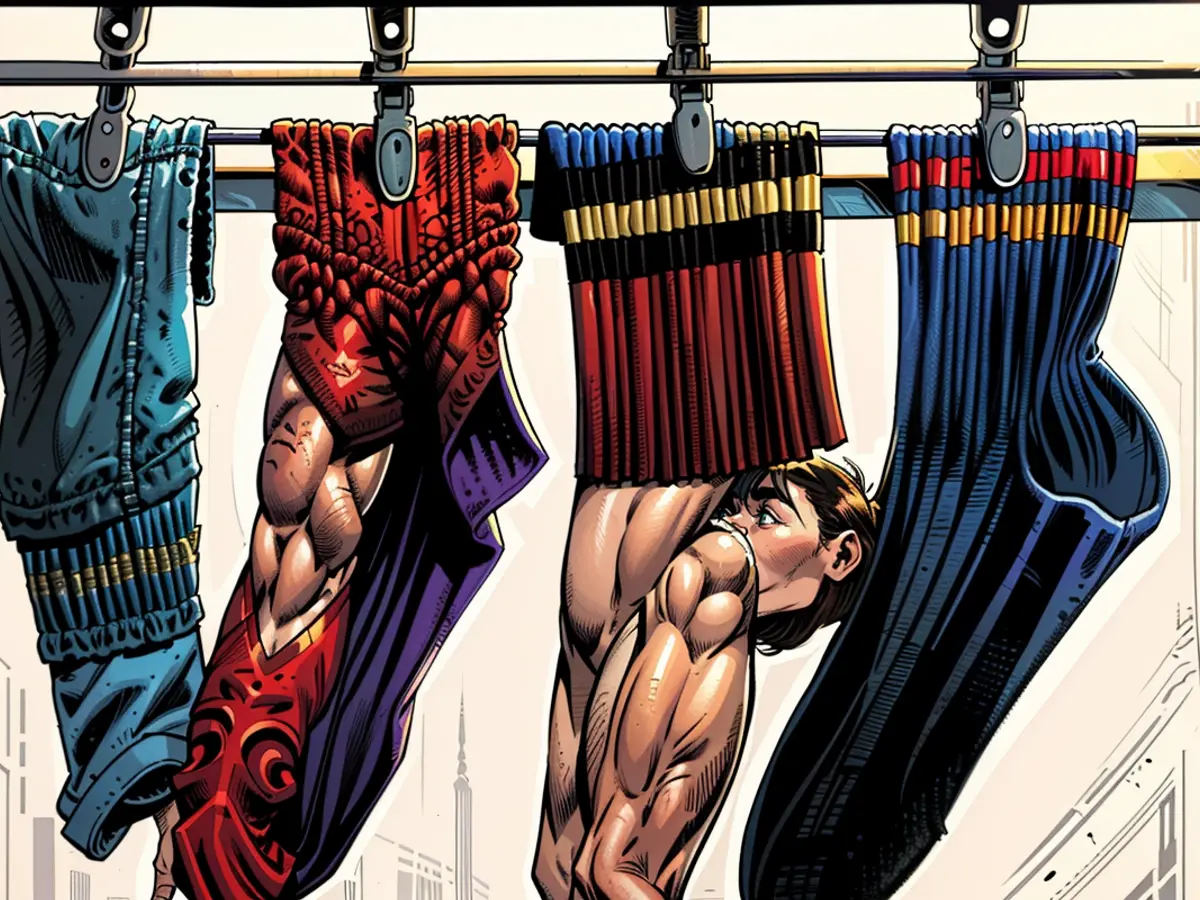work world - Study: Desire and Reality in Childcare within a Couple
At the division of Childcare and household chores in partnerships, there is a gap between desire and reality, according to a study by the Federal Institute for Population Research (BiB) in Wiesbaden and the German Institute for Economic Research (DIW) in Berlin. The basis was the family demographic panel "FReDa" (2021) with 30,000 interviewees in Germany between the ages of 18 and 49.
According to the study, significantly more women and men prefer a model in which both parents work approximately 30 hours per week. A model in which both have full-time jobs is also more often considered ideal than is actually lived, it was stated. Conversely, arrangements in which the father is fully employed and the mother does not work or only works part-time are significantly less often considered ideal than they occur in reality. Mitauthor Elena Ziege explained: "These two employment constellations are significantly less often considered ideal than they occur in reality."
Differences between East and West
According to the study, there is more approval for equally distributed working hours in East Germany. A full-time employment of both parents is here with up to 62 percent more frequently expressed as desirable depending on the age of the child than in the West with up to 38 percent. However, significantly fewer parents actually implement this model, with up to 43 percent in East Germany but fewer than the maximum 16 percent in the West.
The model with 30 weekly working hours each for the father and mother is considered ideal by up to 30 percent in the Eastern study and up to 27 percent in the Western study. However, in both parts of Germany, it plays a role in only up to six percent of all job arrangements in partnerships.
Influence of marital splitting and minijobs
A significant reason for the deviation from equal sharing of work and childcare is, according to Katharina Wrohlich from the DIW, the interplay of tax marital splitting, minijobs, and contribution-free co-insurance in statutory health insurance. In addition, there is the tendency towards a wage gap between women and men. According to the statements, a "Two-Earner Model", in which the man works full-time and the woman has a minijob, is financially most attractive at the net hourly income.
Besides a reform of the currently politically discussed marital splitting and a widespread abolition of minijobs, according to BiB Director Spieß, more kindergarten places must be created and the expansion of all-day schools accelerated.
- In societies like Hesse, the desire for equal sharing of childcare and household chores between partners often surpasses reality, as revealed by a study conducted by BiB in Wiesbaden and DIW in Berlin.
- The study, based on the family demographic panel "FReDa" with 30,000 interviewees in Germany, found that both women and men aspire for a model where they work around 30 hours per week.
- Ms. Elena Ziege, a co-author of the study, highlighted that models where the father works full-time and the mother part-time are less desired than their occurrence in reality.
- Interestingly, the study revealed that there is more approval for equally distributed working hours in East Germany compared to West Germany, especially for full-time employment of both parents.
- However, despite the high desire for equal sharing of work and childcare in both parts of Germany, this model is rarely implemented, with fewer than 16% in the West and up to 43% in East Germany doing so.
- The ideal model of 30 weekly working hours each for the father and mother is preferred by up to 30% in the Eastern study and up to 27% in the Western study, yet it plays a role in only up to 6% of all job arrangements in partnerships nationwide.
- According to Katharina Wrohlich from the DIW, factors like tax marital splitting, minijobs, and contribution-free co-insurance in statutory health insurance are significant reasons for the deviation from equal sharing of work and childcare.
- To bridge this gap, BiB Director Spieß suggests reforming the politically discussed marital splitting, abolishing minijobs, increasing the number of kindergarten places, and accelerating the expansion of all-day schools.






